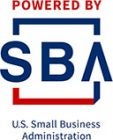As a small business owner, you’ll wear many hats. And while you can’t wear them all, there are some topics in which it’s crucial you have a basic foundation. While you’ll surely bring in support for deeper aspects of your financial dealings, every small business owner needs to have basic financial literacy to successfully plan, launch, and grow their business while adhering to legal requirements.
Basic financial literacy will help you make sure your company is on track, see red flags on the horizon, and know when to utilize experts.
Five areas of basic financial literacy for small business owners
In conjunction with experts inside and outside of the RISBDC, we share a basic outline of the foundation you’ll need in these five areas of financial literacy.
Bookkeeping
RISBDC Associate State Director Manuel Batlle notes these basic aspects of bookkeeping to keep in mind:
- Accurate record keeping is crucial. Recording the details of every financial transaction lays the groundwork for business planning, paying taxes, maintaining proper cash flow, managing payroll, preparing statements you’ll need to seek financing, and much more.
- Every business owner should have a basic understanding of foundational bookkeeping terms.
- As your business grows and becomes more complex, it’s wise to hire a professional bookkeeper to ensure that records are kept correctly while freeing you up to focus on other aspects of your business that only you can do.
- Your accountant doesn’t take the place of a bookkeeper. CPAs are responsible for analyzing profits and losses, while a bookkeeper tracks every cent that comes into and out of your business on a daily basis. Thus, your accountant will rely on having clean books to advise you well.
Additional resources:
- Hiring a Bookkeeper: A Smart Move for Your Small Business (blog post)
- Bookkeeping 101 (YouTube)
Taxes
Tax laws are changing constantly, so instead of memorizing specific laws and details, small business owners need to understand broad strokes and know where to turn for information each year.
Marcum LLP Partner James Wilkinson, CPA, provided these tips on the big picture:
- Along with income taxes on net profits, small businesses also need to manage obligations for sales and use taxes, and employment taxes on employee wages. Each of these brings their own sets of rules, regulations, filing requirements, and penalties for non-compliance. Pay special attention to whether your employees are rightfully classified as employees vs. contractors.
- Beyond federal and state taxes, you must consider whether a nexus exists that requires multi-state tax filing obligations. In recent years, traditional triggers (such as a business having a physical presence or employees in a state) have been revised such that multi-state filing obligations are now the norm, not the exception.
- It is imperative to maintain adequate records and documentation to track and support revenue, expenses, assets, and liabilities. Beyond bookkeeping records, it’s also critical to document business decisions, agreements, and plans. This helps ensure that financial reports and tax filings are accurate, and that you and your advisors have the information you need to make decisions and reach business goals.
- Keep business transactions and records separate from personal items. No matter what you see on Twitter and TikTok, creation of an LLC will not magically convert your personal expenses into business deductions.
- Tax planning is a year-round pursuit. Though you’ll only file a return once each year, you will constantly be strategizing to minimize taxes, hand in hand with proactive business planning.
- While you may glean insight and ideas about the big picture from other entrepreneurs and competitors, one-size solutions rarely generalize. Be careful not to appropriate tax advice without careful analysis and expert advice. When the matters above scale beyond your capacity or expertise, it’s wise to seek a tax professional as part of your team of advisors.
Additional resources:
- Tax Planning Basics for Small Businesses (RISBDC recorded webinar)
Accounting
Accounting is the process of recording, reporting, interpreting, and analyzing financial information. Wilkinson spoke to the principles and elements of accounting that small business owners need to stay on track and meet their goals:
- Balance a cash vs. accrual view for business planning. Cash is king, so make sure that you, or your bookkeeper, frequently reconcile your account records to your bank statements for making decisions on liquidity and cash flow. That said, cash basis reports can be deceiving—depicting health or stress without regard to economic reality. You’ll need to rely on accrual basis analysis for long-term planning and operational decision making.
- Don’t be afraid of incurring debt for the right reasons. Borrowing toward a long-term asset investment, where the cash flows generated from the investment will fund the repayments, is often a savvy part of business planning.
- Review business performance and update your business plan annually. This aspect of working “on” your business (instead of “in” your business) will reflect your vision and drive goal setting with your accountant and other business advisors. Meet regularly with your advisors to discuss performance and plans, as well as business developments, law and regulation changes, economic outlook, and more.
- Actively monitor and manage your business from an accounting perspective. Require deposits and enforce payment terms to manage cash flow, evaluate inventory levels, review invoices for accuracy, approve expenses, and authorize checks.
- There are a number of entry-level accounting packages available. Choose one that
-
- is intuitive
- integrates and synchronizes with your other systems (payroll, banking)
- automates regular tasks
- handles your transaction volume
- provides robust dashboards and reporting
- Can perform accrual basis accounting for business analysis and also cash basis reporting for tax purposes
Be sure to choose a system that comes highly recommended by other users and serves your industry well.
6. When hiring an accountant, confirm they have experience and expertise working with clients in your industry, and that they know your accounting system. Get a real-world review from their current clients for inside information on how they work, including advising, transparency, and accessibility.
Additional resources:
Financial statements
Retired Professor of Business at URI and part-time RISBDC business advisor Henry Schwarzbach laid out three basic principles every small business owner should know about financial statements.
- Understand income statements. The income statement paints a picture of your business’s profitability, and provides a snapshot of how well the business is generating income (through selling products and services) and controlling costs. Income statements provide the most information for analyzing improvement—or retrenchment—when compared to a target, such as a prior (similar) period of time.
- Net income is not the same as net cash flow. The income statement is usually prepared on what’s called the accrual (or modified accrual) basis. In this system, income and expenses are recognized when they are earned or incurred, and not when they actually hit your bank account. While income statements measure financial performance, business owners usually find cash flow more important because you need cash to pay bills. Preparing a cash flow budget will help you plan to have cash when you need it.
- Prepare income statements regularly. If you wait until tax time to run your reports, you’re flying blind much of the year. Preparing budgeted and actual income statements monthly (or at least quarterly) will help guide your decision making and prevent crises. Accounting software should have this reporting built in, or enlist your accountant or bookkeeper to keep you up to date.
Additional resource:
- Understanding Financial Statements, A Starting Point for Planning and Budgeting (RISBDC webinar slides)
Financial projections
Financial projections are crucial because they help you plan for the future. By forecasting future revenue and expenses, you’ll have a framework for decisions on what will help you meet your goals.
Every business owner needs to understand these basic tenets of financial projections.
- Financial projections are used for
-
- Creating business plans
- Applying for a loan or line of credit
- Solidifying your business goals and mapping out potential growth
- Attracting investors
2. Financial projections assist with practical planning for items such as capital expenditures and investments, inventory, and employees.
3. Financial projections help you explain and predict your business when you need investors or credit. They help investors understand why you need their money, and how they can be reasonably assured that you’ll pay it back.
4. Financial projections include these basic steps:
-
- Sales projection
- Expense projection
- Balance sheet projection
- Income statement projection
- Cash flow projection
For each piece, you’ll base your projection on past performance, while taking into account proposed and known changes that would impact results.
5. By nature, financial projections involve hypotheses and assumptions. But they’re not created out of guesswork and thin air. Solid financial projections are based off of past performance and known factors, or off of thorough industry research.
6. It’s tempting to be optimistic when projecting future income, but you must be realistic, and take into account known seasonal swings or any other anticipated factors that will affect your future bottom line.
Start learning literacy
As Schwarzbach notes, poor financial management and lack of financial literacy are leading causes of business failure—so ignoring the numbers isn’t a viable option.
Becoming financially literate as a small business owner can feel like an overwhelming task, especially if you didn’t grow up with a foundation of personal financial literacy. But you don’t have to go it alone. There are a wealth of resources and supports available to help you grasp the basics and set your business up for success.
Check out the RISBDC’s live training schedule and recorded webinars to learn more about the basics of financial literacy and many other small business topics.




